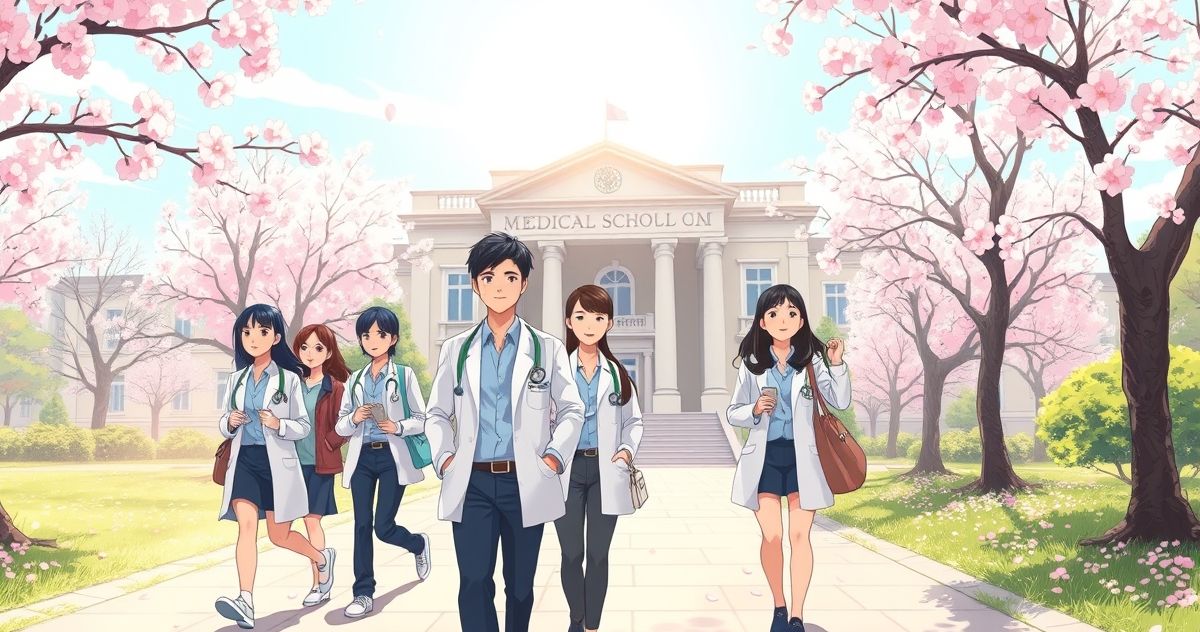
Government Decision Ends 17-Month Medical Education Crisis
The South Korean government announced on July 25 that it will allow approximately 8,000 medical students who failed their first semester due to class boycotts to return for the second semester. The decision also includes plans for additional medical licensing examinations, marking a significant step toward normalizing medical education after 17 months of disruption.
Academic System Reform Enables Student Return
The Ministry of Education released its "Government Position on Medical Student Return and Education," accepting proposals from the Council of Medical School Deans (CMSD), which represents deans from 40 medical schools nationwide. The decision came after consultations with the Korean Association of Medical Colleges (KAMC).
The key change involves transitioning from an annual academic system to a semester-based system. Most medical schools operate on an annual basis, making it impossible for failed students to return mid-year under existing regulations. The semester system will allow students to make up missed credits through vacation courses and other supplementary programs.
Adjusted Graduation and Advancement Schedules
The returning students will follow revised graduation and advancement timelines based on their academic year. Pre-medical students in their first and second years will advance normally in March 2026, alongside students who returned earlier. First-year medical students will graduate in February 2029, while second-year students will graduate in February 2028.
The situation is more complex for third and fourth-year medical students, who must complete a minimum of 52 weeks of clinical training. Even if they return next month, these students cannot graduate until August 2026, six months later than the normal February graduation.
Consequently, the CMSD has requested the government to conduct additional medical licensing examinations. Since fourth-year students graduating in August 2026 cannot take the regular examination schedule (practical exams from September to November, written exams in January), they need an additional testing opportunity in the first half of 2026.
Persistent Concerns Over Special Treatment
Despite the government's efforts to resolve the crisis, criticism remains strong. An online petition opposing "special treatment for medical students and residents" posted on the National Assembly's e-petition platform has garnered over 64,000 signatures as of July 25.
Critics argue that providing benefits such as regulation changes, shortened education periods, and additional examinations to students who voluntarily boycotted classes is fundamentally unfair. Concerns also persist about potential conflicts between students who returned in the first semester and those returning in the second semester, as well as the overall quality of medical education.
Ministry Defends Decision as National Necessity
The Ministry of Education defended its decision, stating that failure to resolve the issue this year would lead to "tripling" problems next year, where multiple academic years would overlap, causing chaos in medical education and delays in medical workforce development.
Kim Hong-soon, Director of Medical Education Support at the Ministry of Education, emphasized that "the government prioritizes protecting students who returned earlier and will thoroughly discuss protection measures for returning students with each university."
Turning Point in Medical Sector Conflict
This measure represents a crucial turning point in resolving conflicts within the medical sector that have persisted for 17 months since the announcement of a 2,000-student increase in medical school admissions in February 2024. The collective class boycotts by medical students and resignations by residents have severely impacted Korea's healthcare system and caused significant patient suffering.
However, fundamental disagreements over medical school expansion remain unresolved. The government maintains that increasing medical school capacity is necessary to address healthcare workforce shortages and strengthen public healthcare, while the medical community opposes the expansion, citing concerns about healthcare quality deterioration and worsening working conditions for medical professionals.
Quality Assurance Remains Key Challenge
The most critical challenge ahead is ensuring educational quality for returning medical students. Addressing concerns about educational inadequacy due to shortened education periods and overlapping academic year operations will be essential.
While the CMSD emphasizes that the return plan was designed "without reducing existing curricula and within limits that do not compromise medical education quality," the practical implementation of these principles remains to be seen. Ensuring adequate clinical training opportunities and minimizing educational gaps during national examination preparation are particularly important challenges.
Some within the medical community suggest that this crisis should serve as an opportunity for fundamental improvements to the entire medical education system. They call for comprehensive reviews of the advantages and disadvantages of annual versus semester systems, appropriate clinical training periods, and improvements to the national examination system.
Whether this medical student return plan will serve as more than just conflict resolution and become a catalyst for qualitative improvements in Korean medical education and medical sector development remains a subject of keen interest.
Original Korean article: https://trendy.storydot.kr/society/government-allows-failed-medical-students-return-second-semester


0 Comments